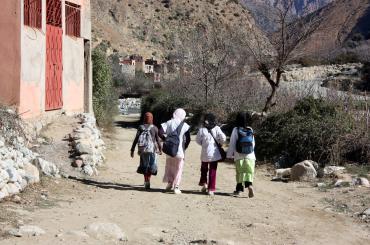
All articles
-

How deforestation drives malaria in Nigeria, affecting women and children most
Forest loss in Nigeria raises neonatal mortality and worsens birth outcomes by increasing malaria exposure among pregnant women.
-

US immigration policy uncertainty drives job relocation to India
Increased uncertainty in India around US immigration policies led to firms relocating jobs from the US to India. Increasing rhetoric around restrictive immigration policy may increase offshoring, rather than promote domestic employment.
-

Economic growth does not guarantee gender equity in work
There are significant disparities across countries in the gender division of work even at similar income levels. Social, institutional, and policy choices play a pivotal role in the variation in gendered labour patterns across countries.
-

Stronger institutions improve environmental quality through specialisation
National air and water quality benefit from strong financial, judicial, and labour market institutions, through comparative advantage. Improving national institutions attracts clean industries but reshuffles dirty production to other countries.
-

How managers in Indian factories mitigate the impacts of absenteeism
Managers in Indian garment factories use informal worker exchanges to mitigate absenteeism. Expanding these collaborations could unlock significant productivity gains.
-

How a documentary film fostered interethnic harmony in Bangladesh
A documentary film, shown to a majority group, portraying the daily lives, cultural practices, and socioeconomic struggles of a minority group in Bangladesh, increased prosociality and reduced complaints against the minority.
-

How do voters respond to information on local politicians’ performance?
Voters that received information about municipal education outcomes in Chile punished mayors with poor performance at the ballot box.
-

Digital access and infectious disease spread
Access to 3G broadband internet in Indonesia reduced COVID-19 cases by approximately 45%, a relatively large impact compared to the effectiveness of other non-pharmaceutical interventions. Areas with higher literacy rates and a greater ability to tel...
-

Unintended consequences of conditional cash transfers on educational outcomes
New evidence from Morocco reveals that conditional cash transfers can constrain learning when no accompanying measures are taken by governments to account for increased enrolment.



